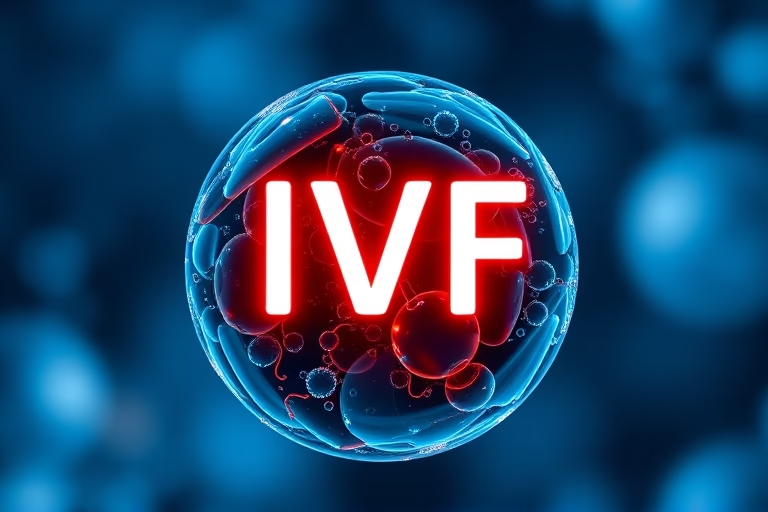In this article, we will explore the topic of IVF at 45, a significant subject for anyone considering assisted reproductive technology later in life. In Vitro Fertilization (IVF) is a process that helps individuals and couples who are struggling to conceive. It involves fertilizing an egg with sperm outside the body before implanting it back into the uterus. As women age, fertility naturally decreases, making the prospect of having a child more challenging at older ages. For women aged 45 and above, the chances of successful conception using IVF diminish due to factors like egg quality and uterine environment. However, advancements in reproductive technologies and individualized care plans have made it possible for some women to achieve pregnancy through IVF even at this later stage of life.
Understanding IVF Success Rates
When considering IVF at 45, understanding the success rates is essential. Generally, IVF success rates decrease significantly as women age. For women under 35, the success rate can be around 40 to 50 percent per cycle. However, for women aged 45, the rates can drop to less than 5 percent per cycle. This decline is largely attributed to lower quality eggs and a less favorable uterine environment for implantation. It is crucial for women considering IVF at this age to consult with a fertility specialist who can provide the most accurate statistics based on individual health conditions.
The likelihood of success can change depending on various factors, including:
By understanding these elements, women can better prepare themselves for the IVF process at 45.
Factors Affecting IVF Outcomes at 45
Several factors play a vital role in determining the outcomes of IVF for women aged 45 and older. Age is the foremost factor, with egg quality naturally declining, which can affect the potential for fertilization and the health of the resulting embryos. Hormonal changes during this time also impact the uterine lining, which can affect implantation success.
Additionally, pre-existing health conditions, such as diabetes or hypertension, can hinder IVF success. Addressing these medical issues early on through lifestyle changes and consultations with healthcare professionals is vital for optimizing the chances of a successful pregnancy. A balanced diet rich in nutrients, regular physical activity, and maintaining a healthy weight can enhance the overall wellbeing of women undergoing IVF.
Emotional support is another critical factor. The stress of fertility treatments can be overwhelming. Support groups, therapy sessions, or simply talking to friends and family can provide the emotional strength necessary throughout the IVF journey. Women should prioritize both mental and physical health to improve their chances of a successful outcome.
Medical Guidance and Assessments
Before embarking on IVF at 45, thorough medical guidance is essential. A fertility specialist will typically perform a comprehensive evaluation to assess both ovarian reserve and uterine conditions. Tests may include hormone level assessments, ultrasound examinations of the ovaries, and possibly genetic screening to identify any chromosomal abnormalities that might impact pregnancy.
These assessments not only help to gauge the likelihood of success with IVF but also allow for customizing treatment protocols that cater specifically to the individual’s needs. For instance, some may opt for using donor eggs, which can significantly improve the chances of a successful outcome since donor eggs are usually from younger donors with higher quality eggs.
Open discussion regarding possible health risks associated with late pregnancies is equally important. Older mothers may face a higher risk of gestational diabetes, hypertension, and other complications that may arise from pregnancy at a later age. A well-rounded discussion that includes pros and cons based on personal health history is necessary to make informed decisions.
Cost Considerations for IVF
One of the crucial factors to consider when opting for IVF at 45 is the financial cost associated with fertility treatments. The price range for IVF can vary widely depending on the location, healthcare provider, and any additional services that may be required. On average, a single IVF cycle can cost anywhere from $10,000 to $15,000, and this doesn’t take into account any medications, consultations, or additional procedures.
Many insurance plans do not cover IVF costs, making it essential to discuss financing options early on. Some clinics offer payment plans, while others may have financing partnerships to help ease the financial burden. Furthermore, considering the possibility of multiple cycles, it’s critical to plan a budget accordingly.
Women should also explore grant opportunities or financial assistance programs that can help mitigate costs. Doing thorough research on various clinics and their success rates can also lead to more informed financial decisions when it comes to pursuing IVF.
Emotional Support and Counseling
The journey to becoming a parent through IVF can be emotionally taxing, especially at the age of 45. Emotional support is essential during this time, as the experiences can range from hope and excitement to disappointment and sadness. Engaging in therapy or counseling can provide individuals with tools to cope with the emotional rollercoaster often associated with fertility treatments.
Support groups can also offer comfort. Connecting with others who share similar experiences can provide a sense of community and understanding that is invaluable during such a personal struggle. Sharing stories and challenges can alleviate feelings of isolation and provide encouragement throughout the IVF process. Involving partners in this emotional journey is equally important as they, too, may face their own set of challenges and emotions during the treatment.
Preparing for IVF Treatment
Preparation for IVF at 45 requires a comprehensive approach. Women should be encouraged to maintain a healthy lifestyle leading up to treatment. This includes a balanced diet, regular exercise, adequate sleep, and stress management techniques. These lifestyle habits are beneficial not only for physical health but also play a significant role in emotional stability.
Additionally, understanding the treatment protocol is vital. Women should familiarize themselves with the medications involved, the timing for various procedures, and what to expect during each step of the IVF process. Having a well-informed understanding allows individuals to prepare better and minimizes uncertainty and anxiety surrounding the treatment.
Recording personal feelings and any physical changes experienced during the IVF cycle can provide beneficial insight for discussions with medical professionals. Keeping detailed notes can help identify patterns and reactions to medications, aiding healthcare providers in making necessary adjustments throughout treatment.
Success Stories and Real-Life Experiences
Success stories from women who conceived through IVF at 45 can provide motivation and hope. Many women have successfully become mothers later in life, overcoming challenges through determination, rigorous health management, and support. These stories underline the importance of adopting a balanced view of the journey—celebrating small victories and remaining resilient through setbacks.
Real-life experiences highlight that while the journey can be exhausting, many women find joy, fulfillment, and a sense of empowerment. Women can draw strength from these narratives, knowing that they are not alone in their struggles and that there are potential pathways to parenthood, even at an advanced age.
Final Thoughts
Considering IVF at 45 presents unique challenges and rewards. Women contemplating this path face the dual realities of declining fertility and the possibility of enduring motherhood. The science of reproductive health has advanced, providing options even for those at an advanced age. However, it is critical to approach the decision with as much information as possible.
Understanding potential success rates, exploring factors that influence outcomes, and considering financial implications are all integral in navigating this journey. Medical assessments can provide insights critical for treatment planning, while emotional support is essential in dealing with the mental and emotional aspects of fertility treatment.
As women prepare for potential motherhood later in life, maintaining a holistic approach that encompasses physical health, mental well-being, and financial planning is key. Engaging with a supportive community and drawing on the experiences of others can provide comfort and encouragement along the way.
Ultimately, IVF at 45 requires a thoughtful balance of optimism, realism, and resilience. No matter the outcome, the experience provides personal growth, an understanding of one’s body, and clarity regarding family goals moving forward.
Frequently Asked Questions
1. What is the average success rate of IVF for women over 45?
The average success rate of IVF for women over 45 is typically less than 5 percent per cycle, largely due to egg quality issues and age-related fertility challenges.
2. Are there any risks associated with pregnancy at 45?
Yes, pregnancies at 45 may carry higher risks, including gestational diabetes, hypertension, and complications during labor. Consulting with a healthcare provider is essential to understand these risks fully.
3. Can I use donor eggs for IVF at 45?
Yes, many women at 45 opt to use donor eggs, which can significantly increase the chances of a successful pregnancy, as donor eggs are usually from younger women with higher quality eggs.
4. What lifestyle changes should I make before IVF?
Women are encouraged to maintain a balanced diet, exercise regularly, manage stress, and avoid smoking or excessive alcohol consumption to improve their chances of success.
5. How can I find support during the IVF process?
Consider joining support groups, engaging in therapy, or connecting with others who have gone through similar experiences to find emotional support and encouragement throughout your journey.
Further Reading
What Type of Psychotherapy Is Best for Anxiety?







